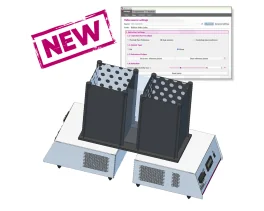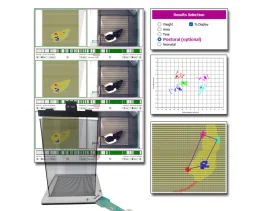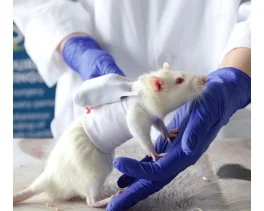Authors
A. Inácio, K. Ruscher, L. Leng, R. Bucala, T. Deierborg.
Lab
Lund University, Department of Clinical Sciences, Laboratory for Experimental Brain Research, Lund, Sweden.
Journal
Journal of Cerebral Blood Flow and Metabolism
Abstract
Multiple mechanisms contribute to tissue demise and functional recovery after stroke. We studied the involvement of macrophage migration inhibitory factor (MIF) in cell death and development of neurologic deficits after experimental stroke. Macrophage migration inhibitory factor is upregulated in the brain after cerebral ischemia, and disruption of the Mif gene in mice leads to a smaller infarct volume and better sensory-motor function after transient middle cerebral artery occlusion (tMCAo). In mice subjected to tMCAo, we found that MIF accumulates in neurons of the peri-infarct region, particularly in cortical parvalbumin-positive interneurons. Likewise, in cultured cortical neurons exposed to oxygen and glucose deprivation, MIF levels increase, and inhibition of MIF by (S,R)-3-(4-hydroxyphenyl)-4,5-dihydro-5-isoxazole acetic acid methyl ester (ISO-1) protects against cell death. Deletion of MIF in Mif(-/-) mice does not affect interleukin-1_ protein levels in the brain and serum after tMCAo. Furthermore, disruption of the Mif gene in mice does not affect CD68, but it is associated with higher galectin-3 immunoreactivity in the brain after tMCAo, suggesting that MIF affects the molecular/cellular composition of the macrophages/microglia response after experimental stroke. We conclude that MIF promotes neuronal death and aggravates neurologic deficits after experimental stroke, which implicates MIF in the pathogenesis of neuronal injury after stroke.
BIOSEB Instruments Used
Grip strength test (BIO-GS3)
Source :
http://www.nature.com/jcbfm/journal/v31/n4/full/jcbfm2010194a.html

 Douleur - Allodynie/Hyperalgésie Thermique
Douleur - Allodynie/Hyperalgésie Thermique Douleur - Spontanée - Déficit de Posture
Douleur - Spontanée - Déficit de Posture Douleur - Allodynie/Hyperalgésie Mécanique
Douleur - Allodynie/Hyperalgésie Mécanique Apprentissage/Mémoire - Attention - Addiction
Apprentissage/Mémoire - Attention - Addiction Physiologie & Recherche Respiratoire
Physiologie & Recherche Respiratoire




































 Douleur
Douleur Système Nerveux Central (SNC)
Système Nerveux Central (SNC)  Neurodégénérescence
Neurodégénérescence Système sensoriel
Système sensoriel Système moteur
Système moteur Troubles de l'humeur
Troubles de l'humeur Autres pathologies
Autres pathologies Système musculaire
Système musculaire Articulations
Articulations Métabolisme
Métabolisme Thématiques transversales
Thématiques transversales Congrès & Meetings
Congrès & Meetings 